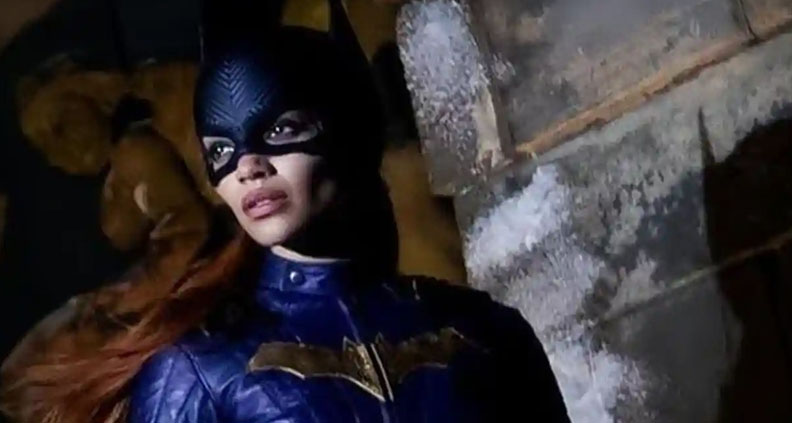How ‘Top Gun: Maverick’ Helped Turn the Tide on Theatrical with a True Cinematic Experience, Part One
The views and opinions expressed here are those of the author’s and do not purport to reflect the opinions of Film Independent, its Members, affiliates or partners. Here’s Part One of a two-part piece.
***
Hollywood’s theatrical distribution model of yore – and the theater-going experience itself – has been on the precipice of an unceremonious demise for years it seems, first choked by a narrowing of demographics and then finally brought to its knees by the concurrent factors of a global pandemic and the ongoing streaming wars. During COVID, worldwide theater closures were predicted to be the final nail in the coffin, when studios saw little choice but to debut blockbusters once destined for splashy theatrical debuts straight to SVOD.
Even the buzziest tentpoles (Warner Bros.’ Wonder Woman 1984, Marvel’s Black Widow) fell victim to the slow death march of theatrical. And in April 2021, theater chains Arclight and Pacific Theaters were forced to close after being shuttered for over a year due to COVID-19 restrictions. Then there’s the ever-evolving consumer trends of the 21st century film audience. In a world where young viewers don’t think twice about watching epics like Star Wars: The Force Awakens on the 6×3-inch screen of their iPhone 13 Pro Max, exclusive theatrical debuts – even for big-budget visual spectacles – are no longer a guarantee.

We saw that with Denis Villeneuve’s sci-fi epic Dune, which was treated to a same-day theatrical and streaming debut by Warner Bros. in 2021. To an audience already accustomed to consuming bite-sized content over TikTok and YouTube, movies became just another form of content – no longer the celebrated, curated art form of the past. But then, a long-gestating legacyquel comes along to upend everything ….
‘MAVERICK’ AS METAPHOR

It’s precisely in this fragile and dire theatrical moment that the Paramount Pictures and Skydance juggernaut Top Gun: Maverick arrived in May 2022 to become an unexpected box office champion, to the point where many industry observers feel has helped turn the tide in theatrical distribution’s years-long free-fall. With its $707 million in domestic sales (and $1.4 billion worldwide), the wildly entertaining naval aviation visual feast recently overtook Marvel’s Infinity War and even Black Panther to claim the #5 spot on the all-time domestic B.O. charts.
The film’s stunning performance belatedly vindicated Paramount’s – and especially producer/star Tom Cruise’s – unwavering refusal to relegate the highly-anticipated sequel to a streaming debut after two long years of COVID-19 delays.
You probably know that Top Gun‘s sequel picks up 30+ years after the events of the 1986 pop culture phenomenon. In director Joseph Kosinski’s legacyquel, the titular Maverick (Cruise) is the best fighter pilot the U.S. Navy has ever seen; the only naval aviator who has shot down three enemy MiGs in the last 30 years. But due to a series of insubordination transgressions, his career has stalled at the rank of Captain.
Unfortunately for him, drones are the future in this new Navy, as Rear Admiral Cain (Ed Harris) harshly reminds him. “The future is coming and you’re not in it. The end is inevitable, Maverick. Your kind is headed for extinction.”
“Maybe so, sir. But not today,” comes Maverick’s respectful-yet-defiant clapback, as he’s called back to the Navy’s “Top Gun” academy to train a class of new recruits for an upcoming mission.
As the aging fighter pilot who was almost put out to pasture one too many times, Maverick is the perfect metaphor for the theatrical experience. While many have been looking – and sometimes even cheering – for the death of theatrical in recent years, Cruise – throughout his career, as one of Hollywood’s staunchest defenders of the cinematic experience – was adamant that Maverick would never premiere on a streaming platform.
“That was never going to happen. Never,” insisted the 60-year-old action icon during a Q&A after the film premiered at Cannes.
THEATRICAL WINDOWS IS STILL VERY RELEVANT

Under crushing financial pressure throughout the pandemic, Paramount could have easily caved and released Maverick on its own budding streaming platform Paramount+. But thankfully, they had the patience and foresight to wait for the right time. It has definitely paid off; all summer, Maverick has broken one record after another: the highest Memorial Day weekend release for the domestic box office, at $160 million, surpassing Titanic to become Paramount’s biggest worldwide release of all time. And the latest? Maverick is now the only film in cinema history to secure the #1 spot domestically on both Memorial Day weekend and Labor Day weekend.
Waiting to release a major blockbuster in theaters also paid off for last year’s No Time To Die, albeit to a less spectacular extent. The much-anticipated culmination of Daniel Craig’s tenure as the world’s most elegant spy grossed $774 million worldwide when it was finally released in theaters in October 2021. This, compared to the alternative of selling No Time to a streamer for a reported $600 million, as some feared would happen during the height of the pandemic.
A SINGULAR CINEMATIC EXPERIENCE
With its intoxicatingly vertiginous aerial combat and an unexpectedly moving emotional core, Maverick‘s exuberant addition to the 1986 original (also a sleeper hit) has been unstoppable for one simple reason: it reminds us of why watching certain films on the big screen is the only way to go.
In his recent interview with the Toronto Sun, Comscore Senior Analyst Paul Dergarabedian observes: “The film proved that the movie theatre experience is undeniably unique, undeniably important and clearly as relevant as ever for audiences in the modern streaming era, and that is no small thing.”
For most films – no matter the genre – an exclusive theatrical run still seems the most effective way to make a big splash for mass audiences. The longer a film stays in the theaters without simultaneous streaming availability, the longer it remains in the water cooler conversation. Maverick could never have garnered the sustained media attention it has enjoyed all summer had it been consigned to a conversation-flattening streaming debut.
Take Netflix’s recent big-budget star-studded actioner The Gray Man, which was made for $200 million plus more for a robust marketing campaign. Directed by Joe and Anthony Russo of Avengers pedigree and starring Ryan Gosling and Chris Evans, the spy thriller stayed in Netflix’s Weekly Top 10 list for only eight days before viewership declined by a reported 60% in its second week.
TRICKLE-DOWN BOX OFFICE

Though polarizing for his controversial shelving of HBO Max’s $90 million streaming original Batgirl, Warner Bros. Discovery’s new boss David Zaslav – who had led unscripted giant Discovery since 2006 prior to its merger with WB earlier this year – appears to agree with the sentiments seemingly proven out by the Top Gun sequel’s success.
“This idea of expensive films going direct to streaming — we can’t find an economic case for it,” he remarked during a recent Q&A. More importantly, Zaslav believes the conventional wisdom that worked before streaming transformed the business: that how well a film performs during its theatrical run directly impacts downstream revenues, whether it be SVOD, cable or home video. “When you’re in theaters, the value of the content and the overall viewing experience is elevated,” adding that Warner Bros. Discovery “will fully embrace theatrical” moving forward.
This is clearly evident with Maverick: even with the film continuing to play in some 2,900+ theaters nationwide deep into its 14th week, it finally became available digitally and instantly became the best-selling title in the first week of any digital release in history.
A successful theatrical run for film increases its value, both material and perceived. Again, we saw this when No Time to Die was released exclusively in theaters two weeks ahead of Dune‘s HBO Max debut last year: while the former raked in $760 million globally, the latter pulled in just under $400 million despite a robust fanbase for the Frank Herbert novel and the 1984 film adaptation.
For more on how this summer’s lucrative box office reinvigorated the streaming vs. theatrical battle and what it takes to draw audiences from a truly wide-ranging demo, check back later today for Part Two of our analysis.
Film Independent promotes unique independent voices by helping filmmakers create and advance new work. To become a Member of Film Independent, just click here. To support us with a donation, click here. Your donation – and impact – will be doubled through our Board Members and Friends Matching Challenge, available through September 29.

